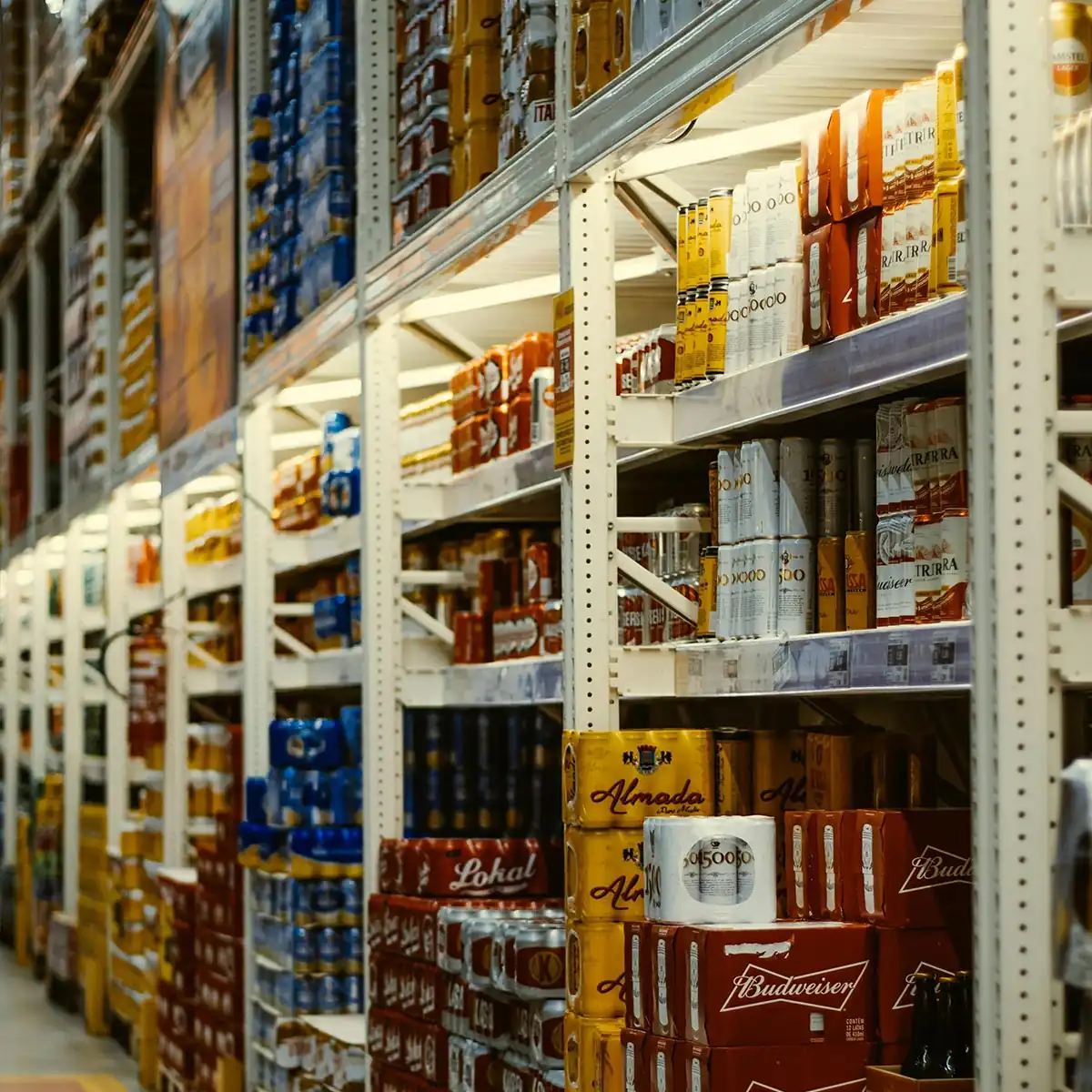A major company in the beverage sector was managing logistics activities of various nature and complexity within the bottling plant, with a noticeable loss of focus on “core” processes and an opportunity for improvement in “non-core” activities.
The challenge
The main challenge was identifying practical solutions while maintaining focus on:
The balance within a complex ecosystem,
including the plant, distribution providers, external support warehouses, other national plants, and external suppliers of marketed and support products.
The economic balance,
which was essential to present the project to the Board.
IT constraints
that affected some process choices, which otherwise could not be implemented.
Change planning
and associated risks.
The solution
Step 1 - “decomplexity”
The plant’s processes were mapped, identifying the “core” and “non-core” processes. The “non-core” processes were characterized by:
impact
(space occupied, personnel involved, volumes managed, etc.)
functionality of spaces and equipment
(need for shelving, forklifts, etc.)
potential synergies/external competencies
(3PL partners already involved or potential partners, centralization of activities, etc.)
After evaluating constraints and alignment with other processes, the prioritization of the LTL (Less Than Truckload) order preparation and loading process was identified, as it was:
high impact
(large volumes and spaces dedicated to picking activities within the plant)
dysfunctional
(inadequate plant areas and equipment for the activity)
potential synergies with local suppliers
possessing relevant expertise, areas, equipment, and important synergies.
To obtain approval for outsourcing the process, it was crucial to estimate:
the benefits of outsourcing
the specific LTL process in terms of performance from a specialized 3PL provider.
the simplification and efficiency improvements in the plant's "core" processes
enabled by this outsourcing (layout revision, space recovery, improved pathways, better personnel interchangeability, etc.).
Step 2 - “complete decomplexity”
In addition to analyzing the processes from the previous phase, aBCD Consulting also analyzed outsourced ecosystem processes using different methods and partners, with the aim of identifying potential synergies by centralizing the “non-core” processes at a single external hub and completing the outsourcing of complexities outside the plant. The greatest benefits were identified in:
further specialization of the 3PL partner
in order picking by item, even for FTL (Full Truckload) traffic requiring picking.
consolidation of different external stocks
of the same items into a single hub, reducing safety stock levels and the external space required.
streamlining shuttle operations
and stock allocation.
total focus of the plant
on production activities.
Results
Step 1
A specialized hub was created at a partner 3PL site near the plant, yielding significantly improved performance with greater flexibility and strong synergy with LTL distribution services. The operational capacity of the plant increased due to better space utilization and a greater focus on “core” processes, reducing the need for external storage capacity during pre-stock periods.
Step 2
This operation led to a 30% reduction in safety stock levels and the external areas required (in terms of square meters), maximized performance in order assembly with item picking, and fully simplified plant processes, as well as the overall plant ecosystem.
Supply chain consulting for optimizing the logistics network
is a bespoke service designed for forward-thinking companies that aim to grow while also improving non-core activities.

